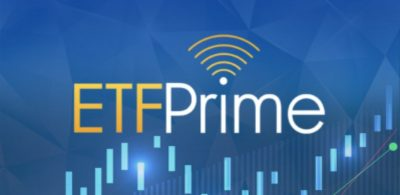On the latest episode of ETF Prime, host Nate Geraci is joined by VettaFi’s Todd Rosenbluth to discuss Morgan Stanley’s pending ETF entrance. Also on the show, NightShares CEO Bruce Lavine explains the “night effect” and how they are seeking to capture it in the NightShares 500 ETF (NSPY) and NightShares 2000 ETF (NIWM). Innovative Portfolios’ Peter Bjelopetrovich spotlights their two recent mutual fund-to-ETF conversions.
Morgan Stanley is about to enter the ETF scene. A few weeks ago, they filed to launch 4 ETFs. Big names such as Capital Group, DoubleLine, Dimensional, and Neuberger Berman have entered the ETF space in 2022, and Morgan Stanley is set to return for the first time since 1996.
The four ETFs Morgan Stanley is filing for are tied to their Calvert business. Of the four index-based equity ETFs, three are tied to Calvert’s responsible index approach, and the fourth is a unique fund. Calvert has a significant environmental, social, and governance presence in the mutual fund world. Many of the funds being cloned are rated by Morningstar as four or five stars.
“I like them leveraging their expertise through Calvert because that’s a brand that is well-known within the RIA community that focuses on ESG. A lot of advisors have built strategies using Calvert mutual funds,” Rosenbluth said, noting that though ESG funds have more scrutiny than they have in the past few years, both Morgan Stanley and Calvert are playing to their strengths. “I think this is the beginning of Morgan Stanley’s presence in the ETF market space,” Rosenbluth said, continuing, “they are going to be a player to watch.”
Morgan Stanley appears well positioned to get its products to the necessary distribution platforms due to their institutional heft. Rosenbluth sees Calvert as taking the lead name, with these products going beyond Morgan Stanley’s in-house distribution platform. “I think Morgan Stanley wants to do this right, and they know there is going to be a lot of attention on these products.”
Are NightShares the Right Shares?
NightShares 500 ETF (NSPY) and NightShares 2000 ETF (NIWM) are two of the most fascinating ETFs launched this year, providing exposure to “the night effect.” The night effect is the historic tendency for many of the returns on the equity market coming from the overnight session (buying at the close and selling at the next day’s open.) According to Lavine, “this thing we call the night effect was hiding just under the surface of people’s consciousness. They knew that something was going on with the overnight markets but they never had a product split it.”
The night effect has been observed by academics for years, and according to Lavine, it tends to have less volatility than daytime trading. The book is still open as to why the markets behave differently at night. “There’s a timing of news flow argument that earnings are reported when the markets are closed and on balance lead to upward pricing of securities,” Lavine said, explaining one of the theories behind the night effect. He also pointed to an institutional “de-rifting” at the end of the day. Institutions, Lavine argues, “like to be in control,” and they lose that control when the markets close, causing a flattening at the end of each day. There are other structural changes around charges that also impact behavior. The night effect has been observed in over 25 countries and seems to be broadly universal.
Explaining how NightShares manages to get only night exposure, Lavine says the funds sit in cash and short-term treasuries and purchase futures at the end of the day and sell out at night, creating a cash-like profile during the day. Lavine indicated that transaction costs haven’t been a big factor. “Our goal is to give you the best institutional level execution we can. Right now, that’s futures, it could be down the road that we use swaps.”
Performance has been rocky so far. NSPY is down 4% at a time the S&P has been up 3%. NIWM is down 6%, while the Russell 2000 is up 7%. “The night effect works over time, it does not work all the time,” Lavine argues, pointing to underperformance during certain periods, but that it tends to correct itself over time. Lavine pointed to a three percent dip in the markets following the Fed talks on Friday, touting that the night effect avoided that carnage because the markets had opened flat.
Innovative Portfolios Make Some Conversions
Peter Bjelopetrovich joined Geraci to discuss the Dividend Performer’s ETF (IPDP) and the Preferred-Plus ETF (IPPP). Both funds converted back in March, which Bjelopetrovich said allowed them to lower their operating expenses and get tax efficiency for their clients. They were able to retain their Morningstar ratings and have better distribution options as a conversion rather than launching from scratch.
“It was about eight months for the process of the conversion to take place,” Bjelopetrovich said, alluding to the cumbersome process. Bjelopetrovich thinks it was worth it, though, because they got to keep their performance track record.
Listen to the entire episode of ETF Prime with Todd Rosenbluth:
For more ETF Prime podcast episodes, visit our ETF Prime channel.

